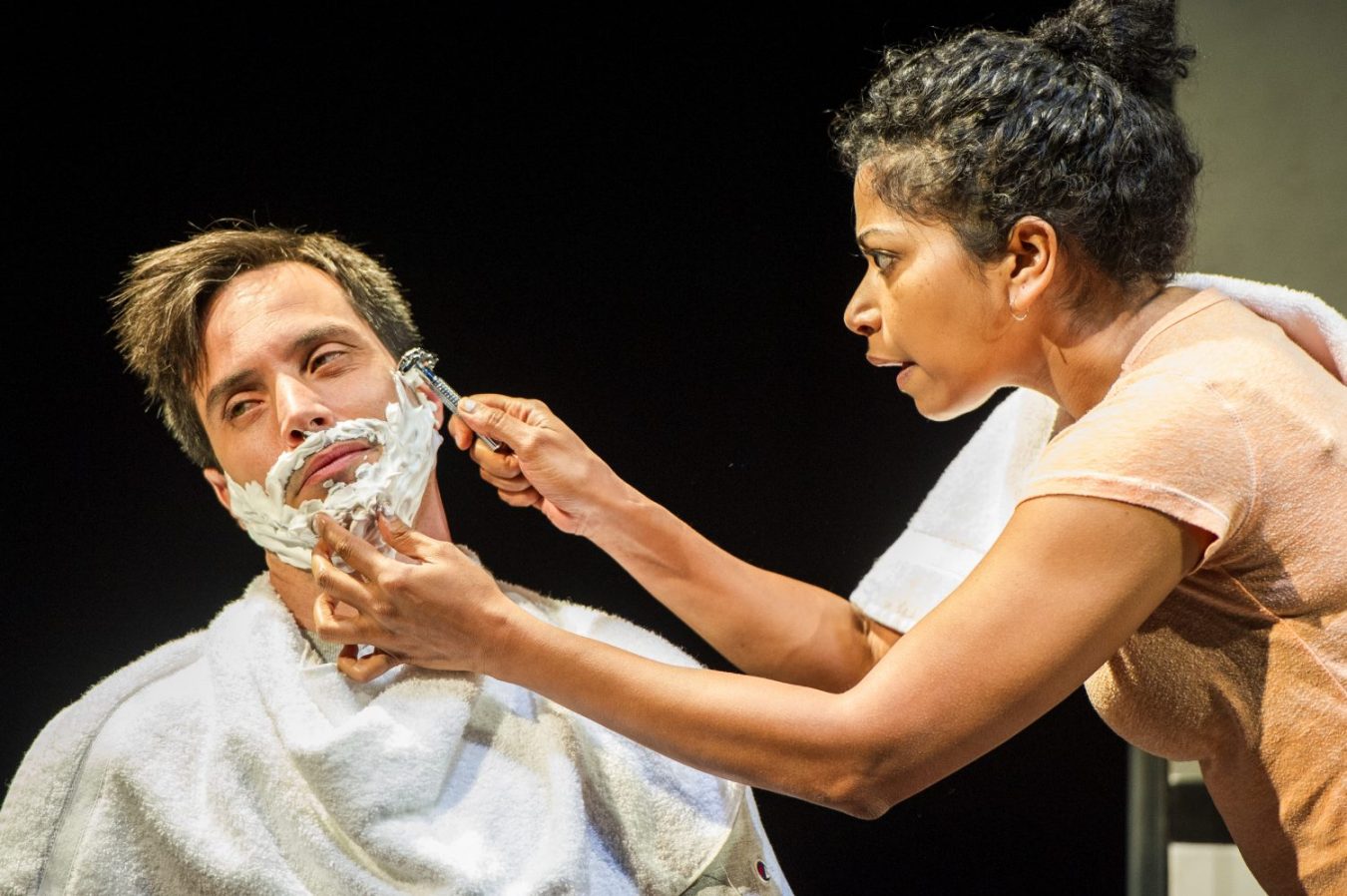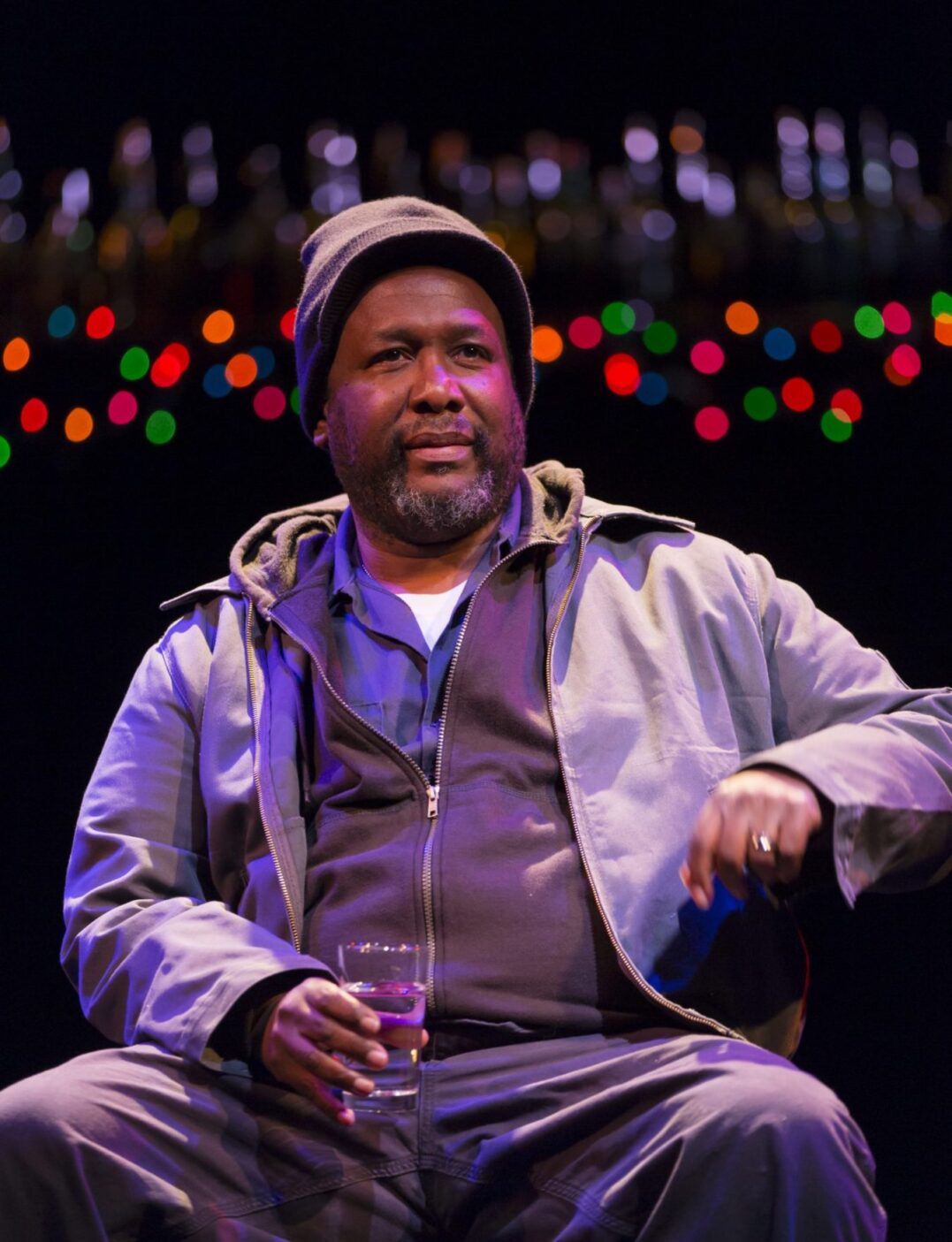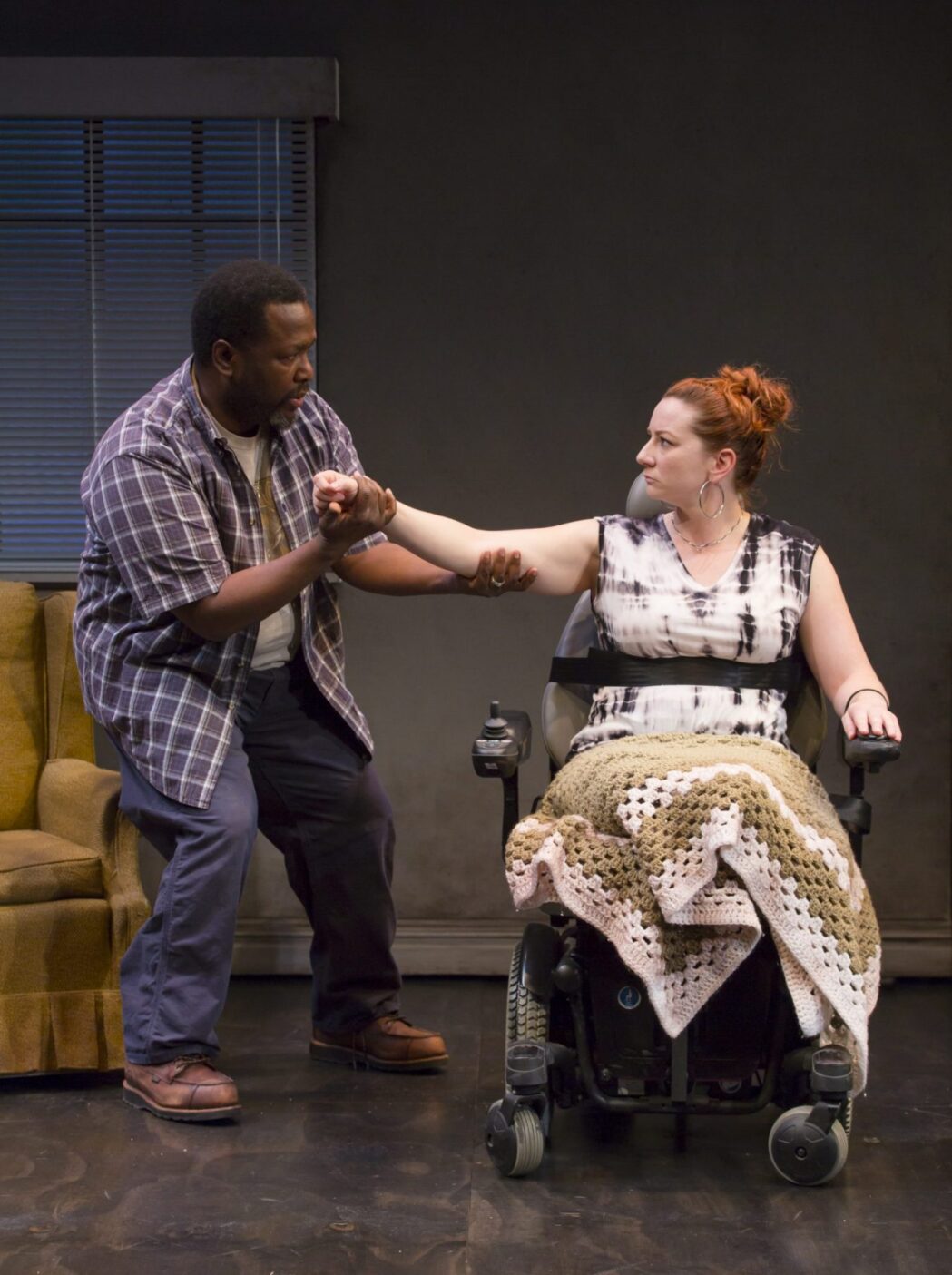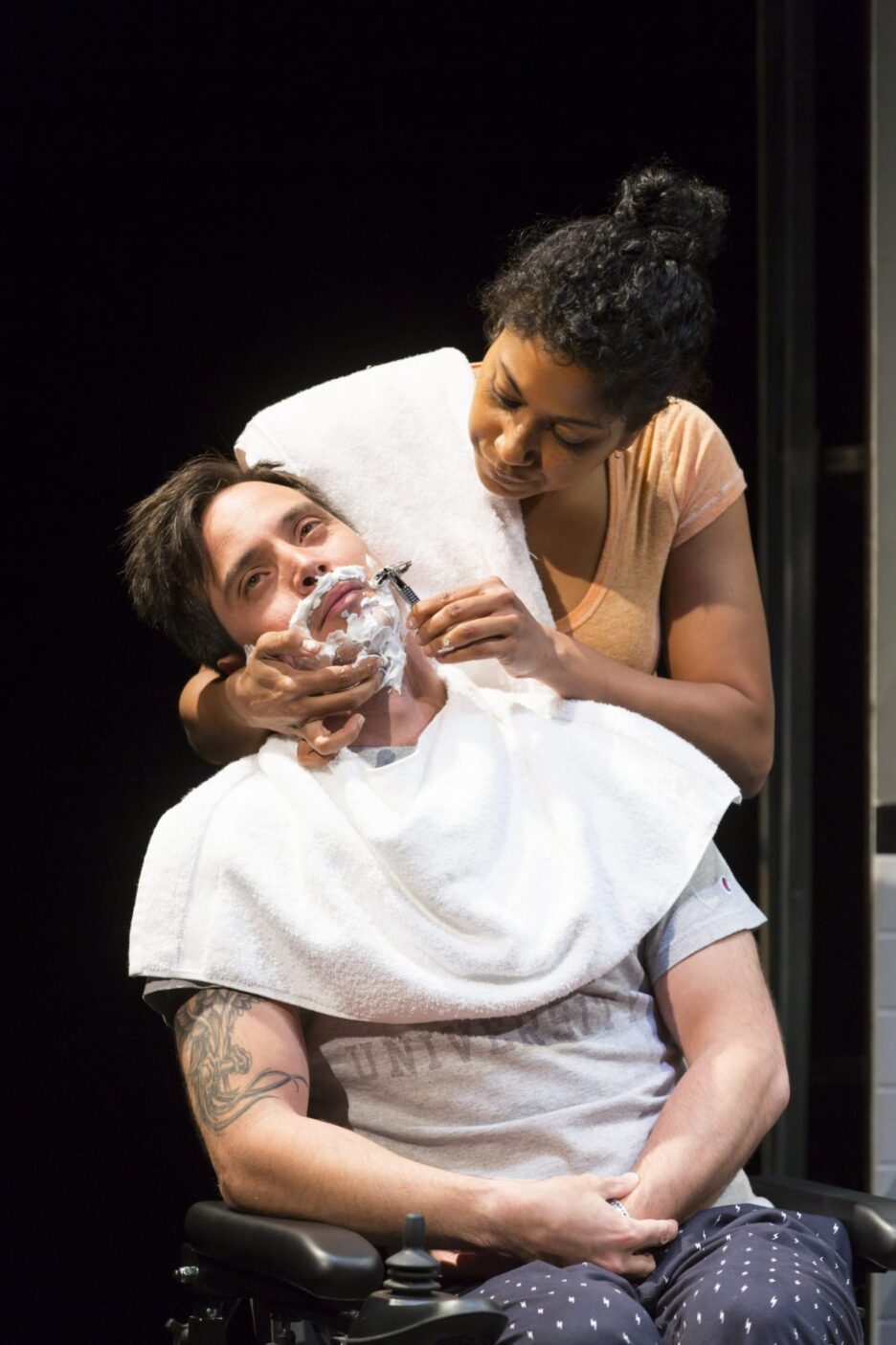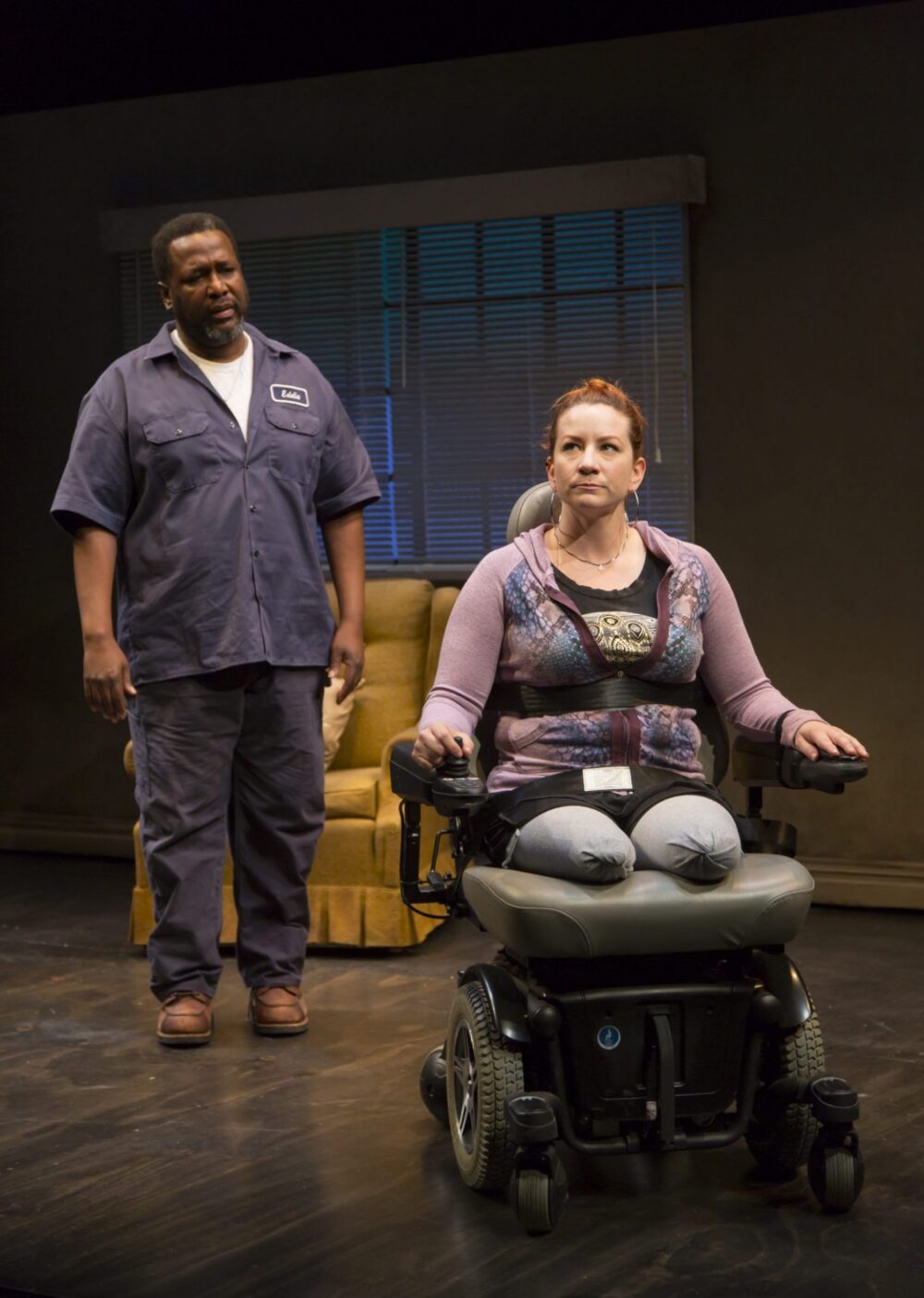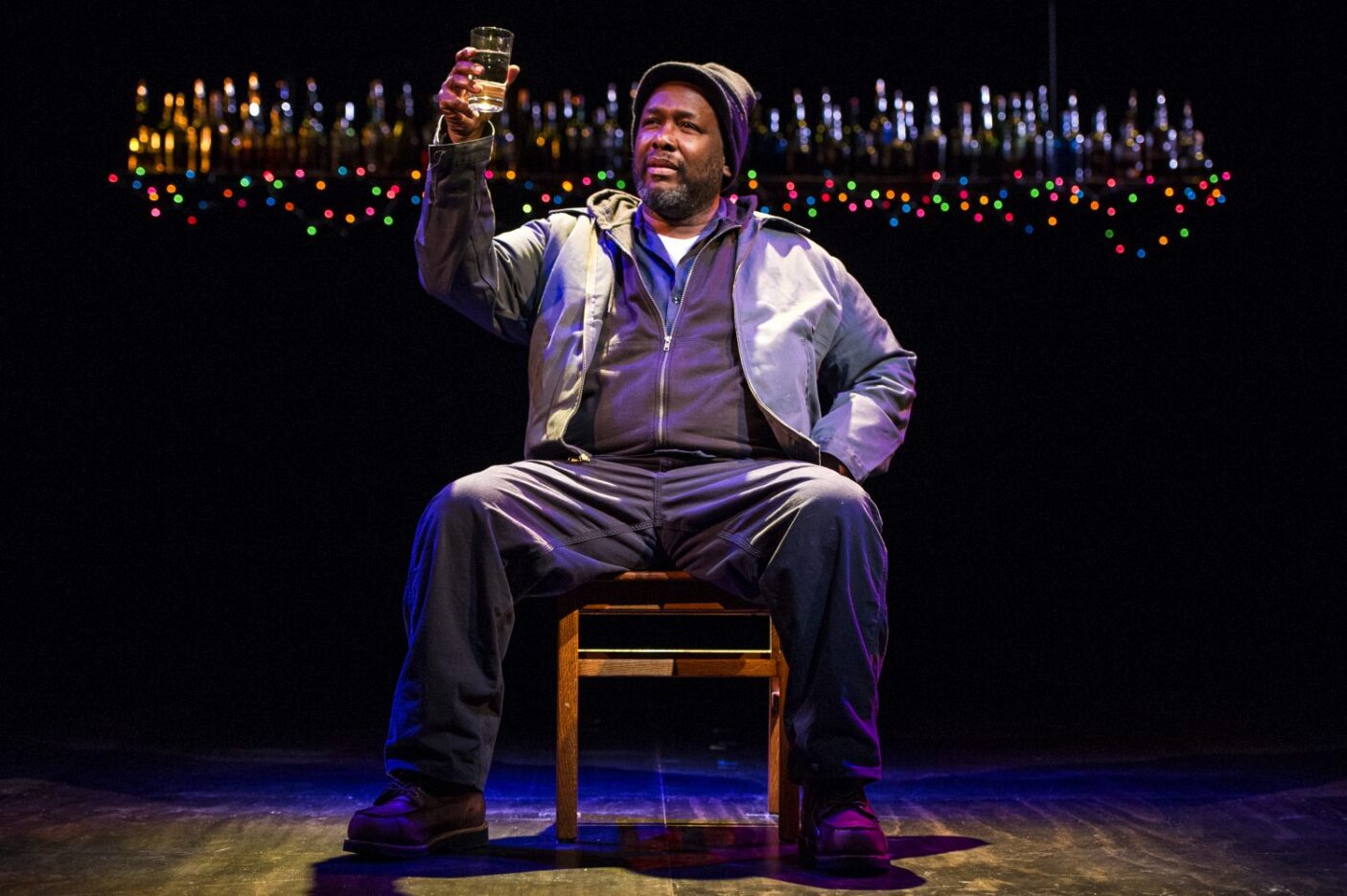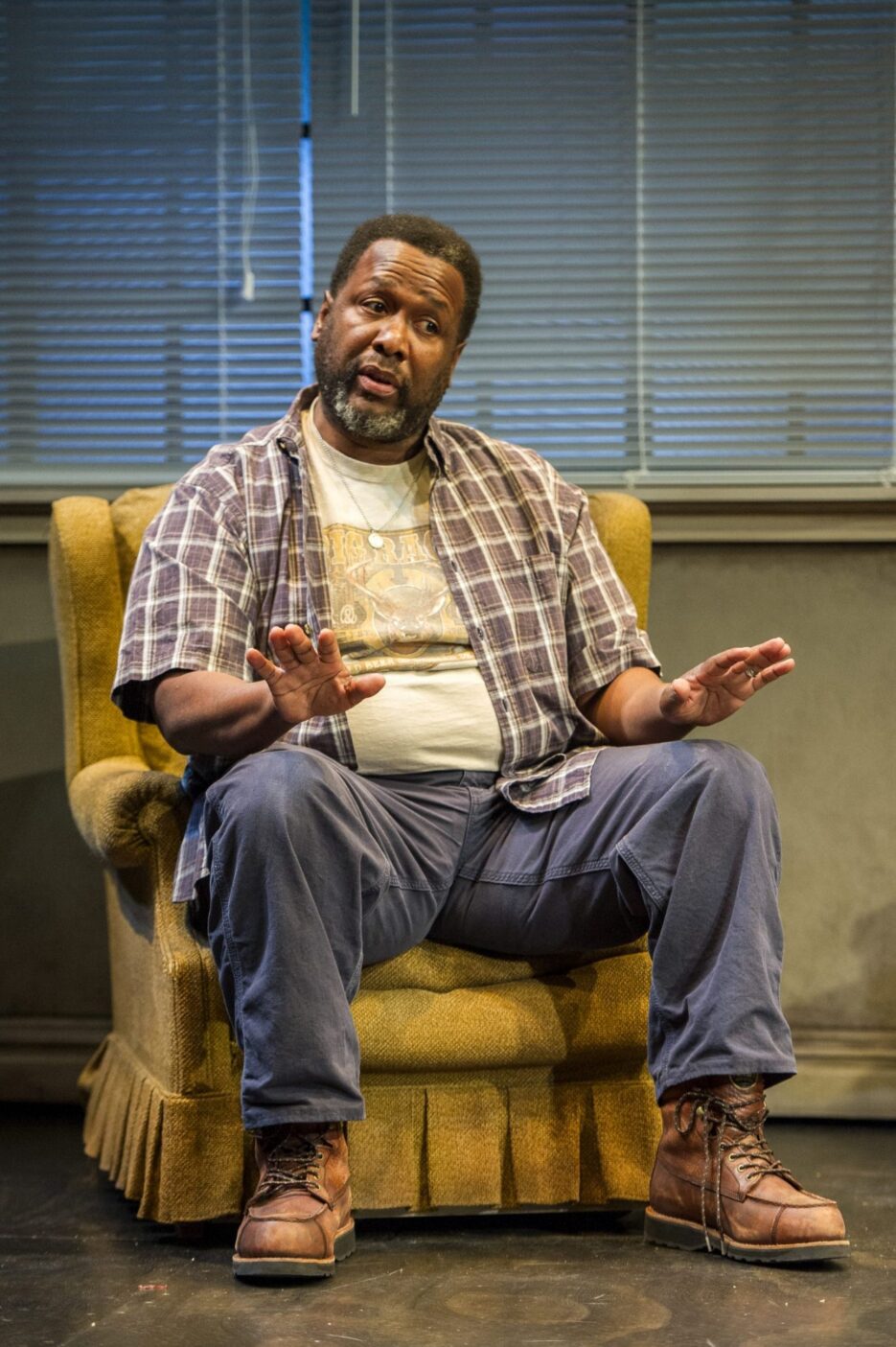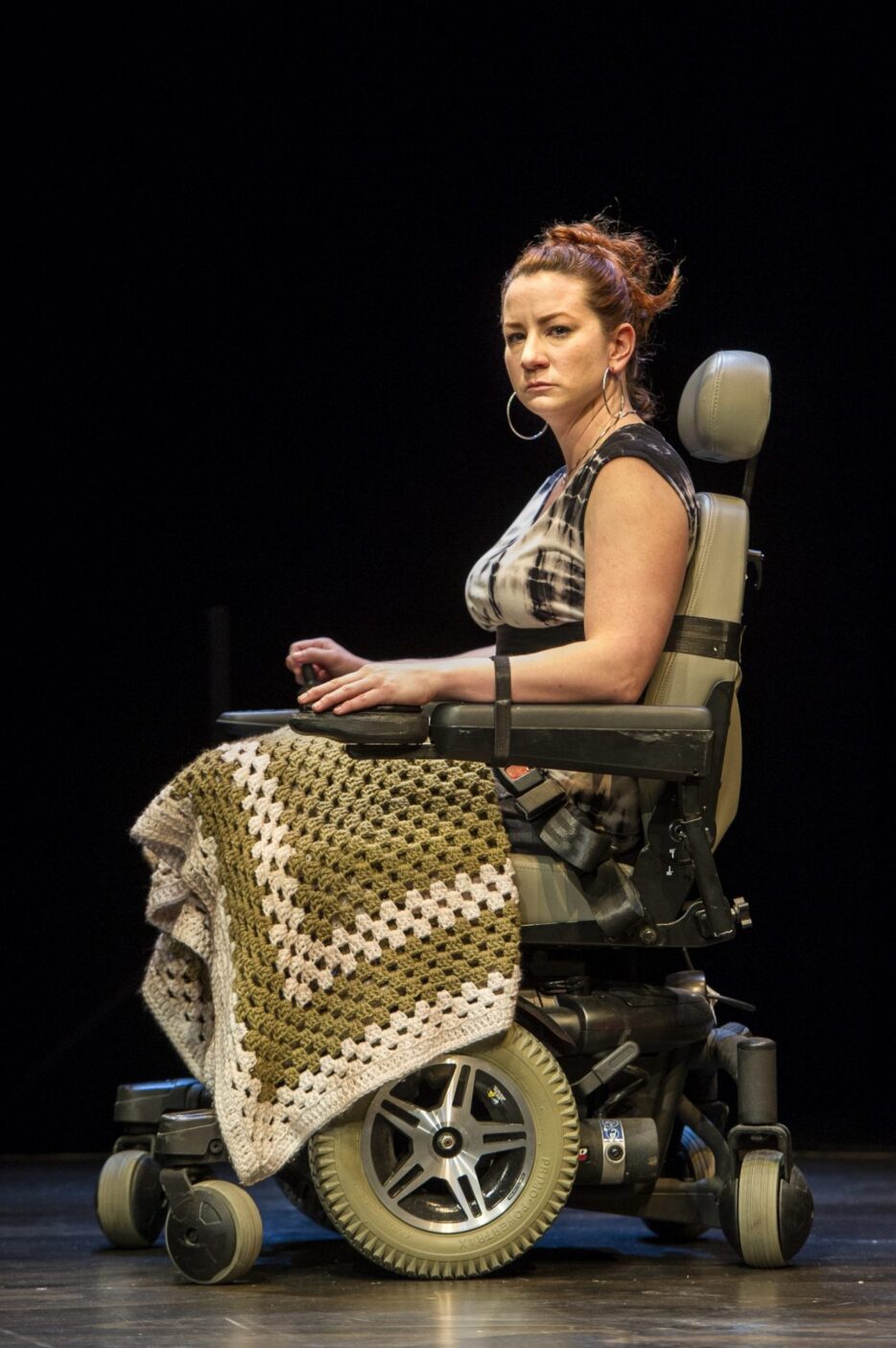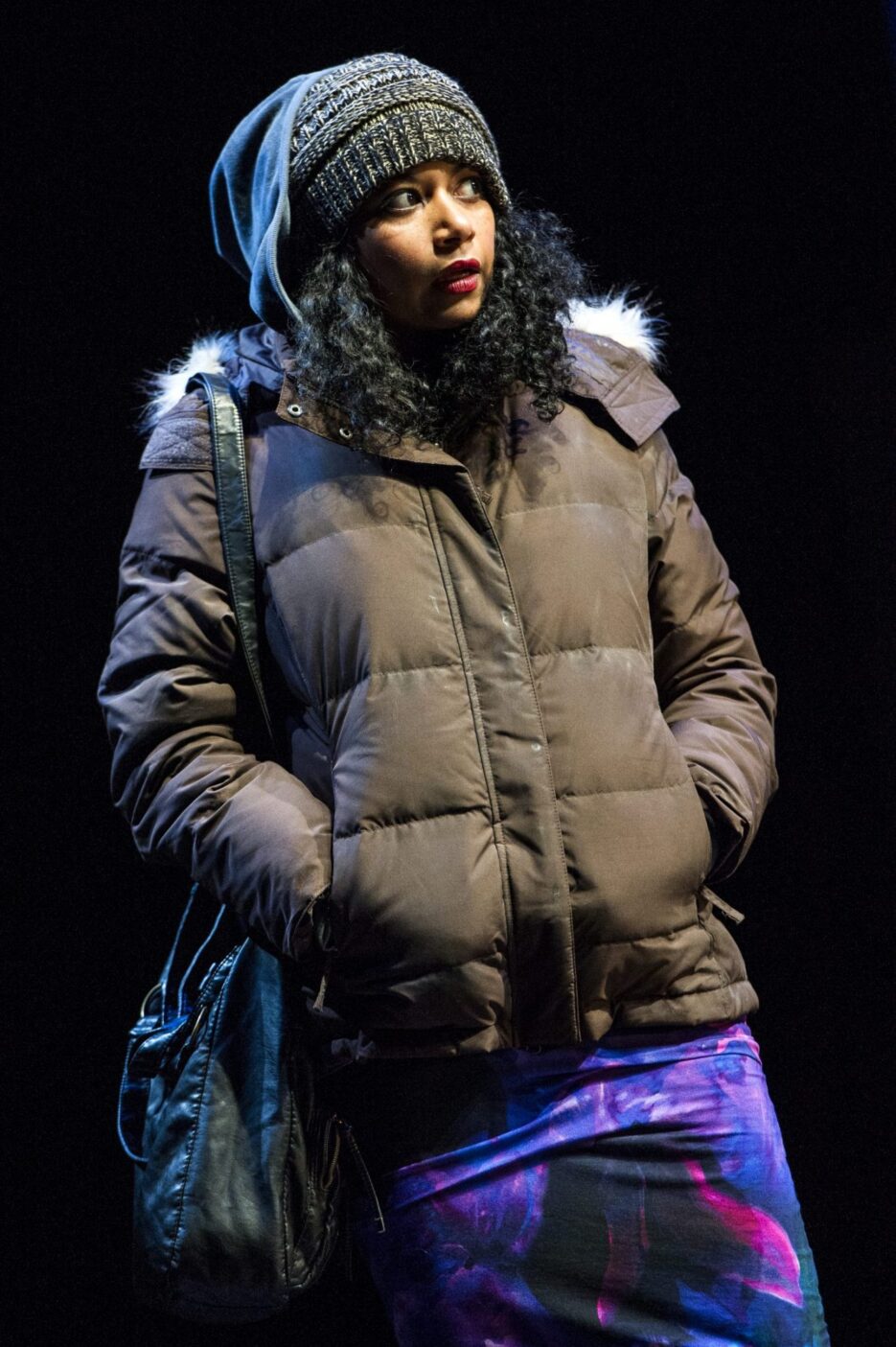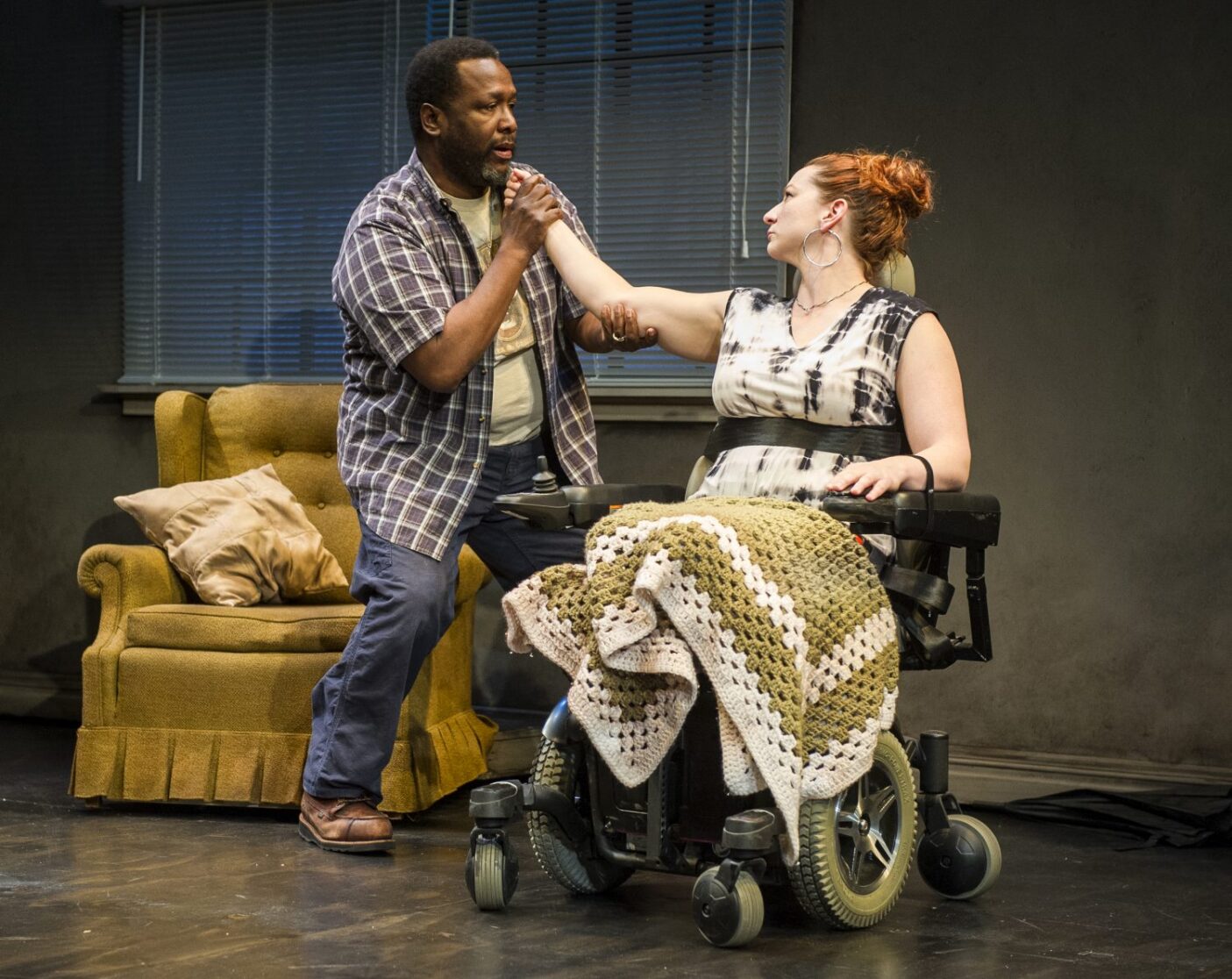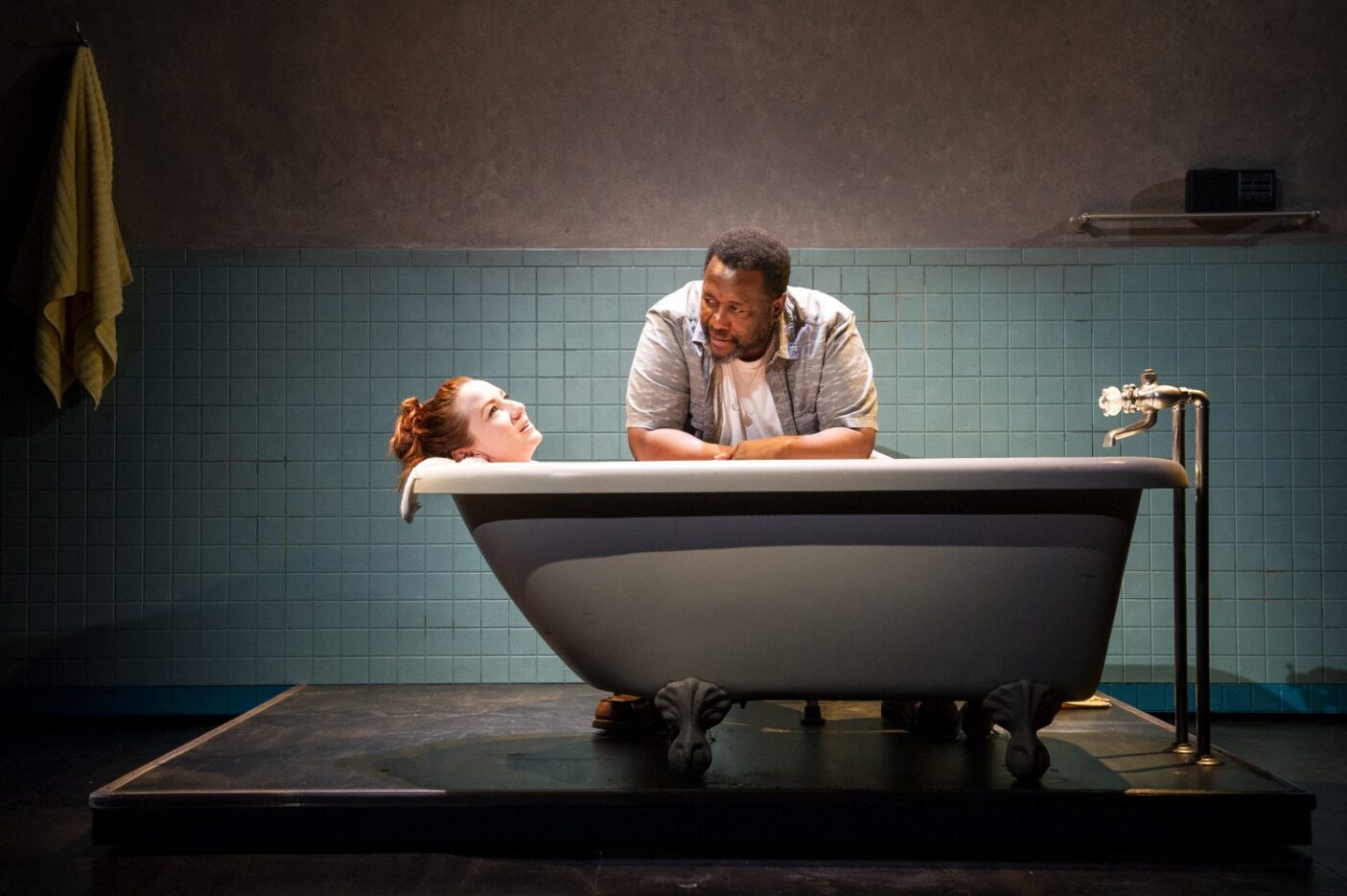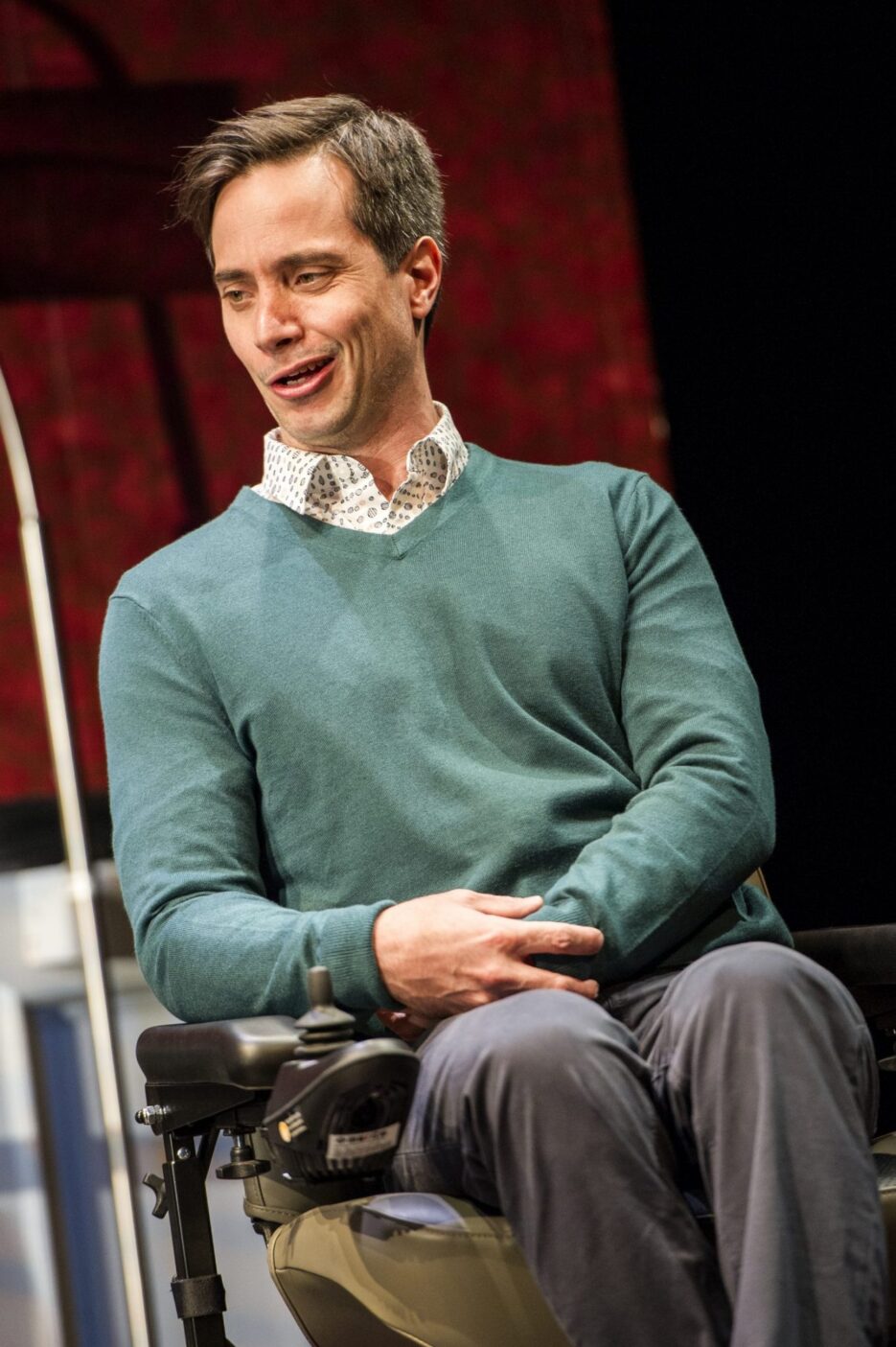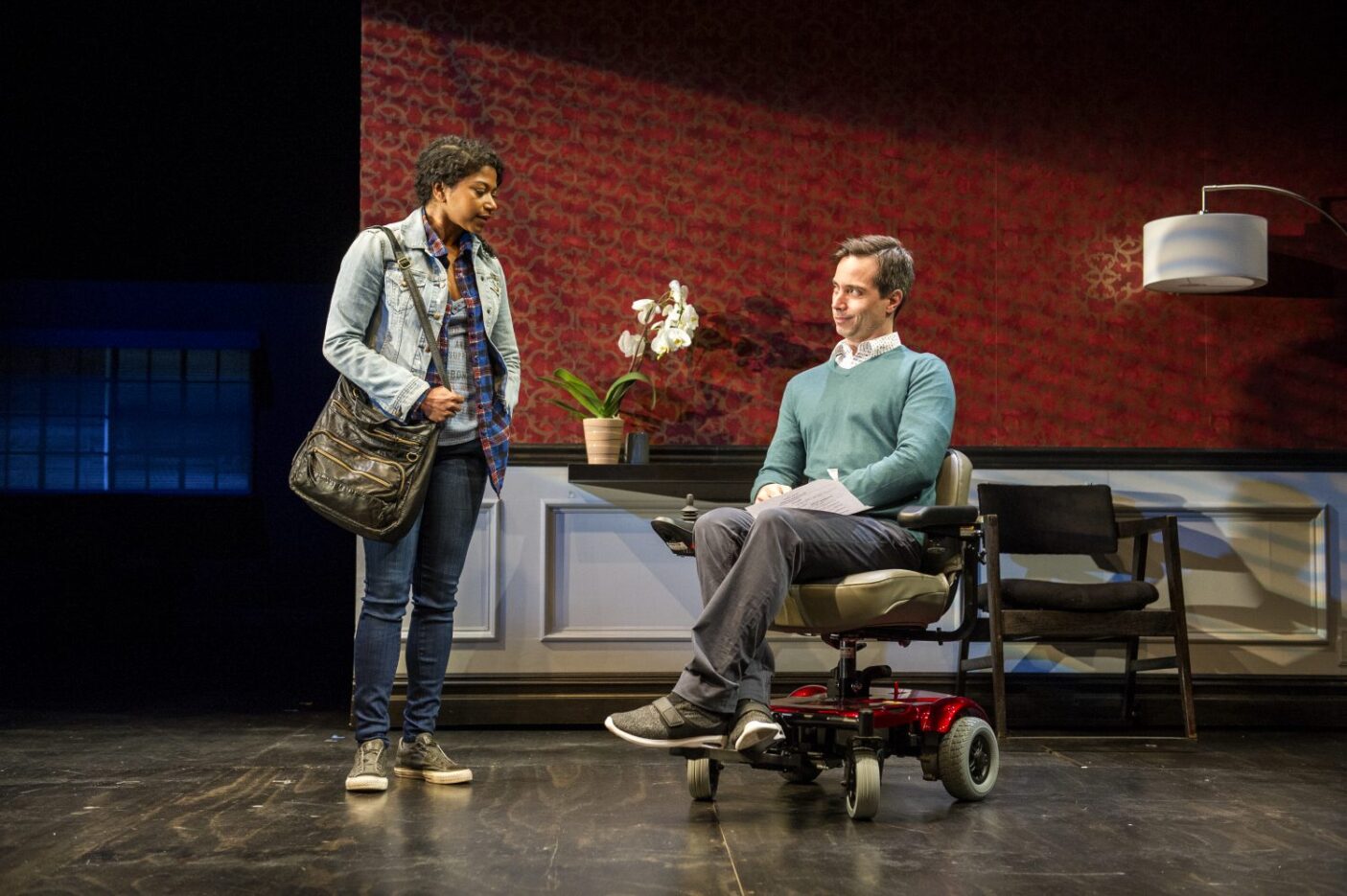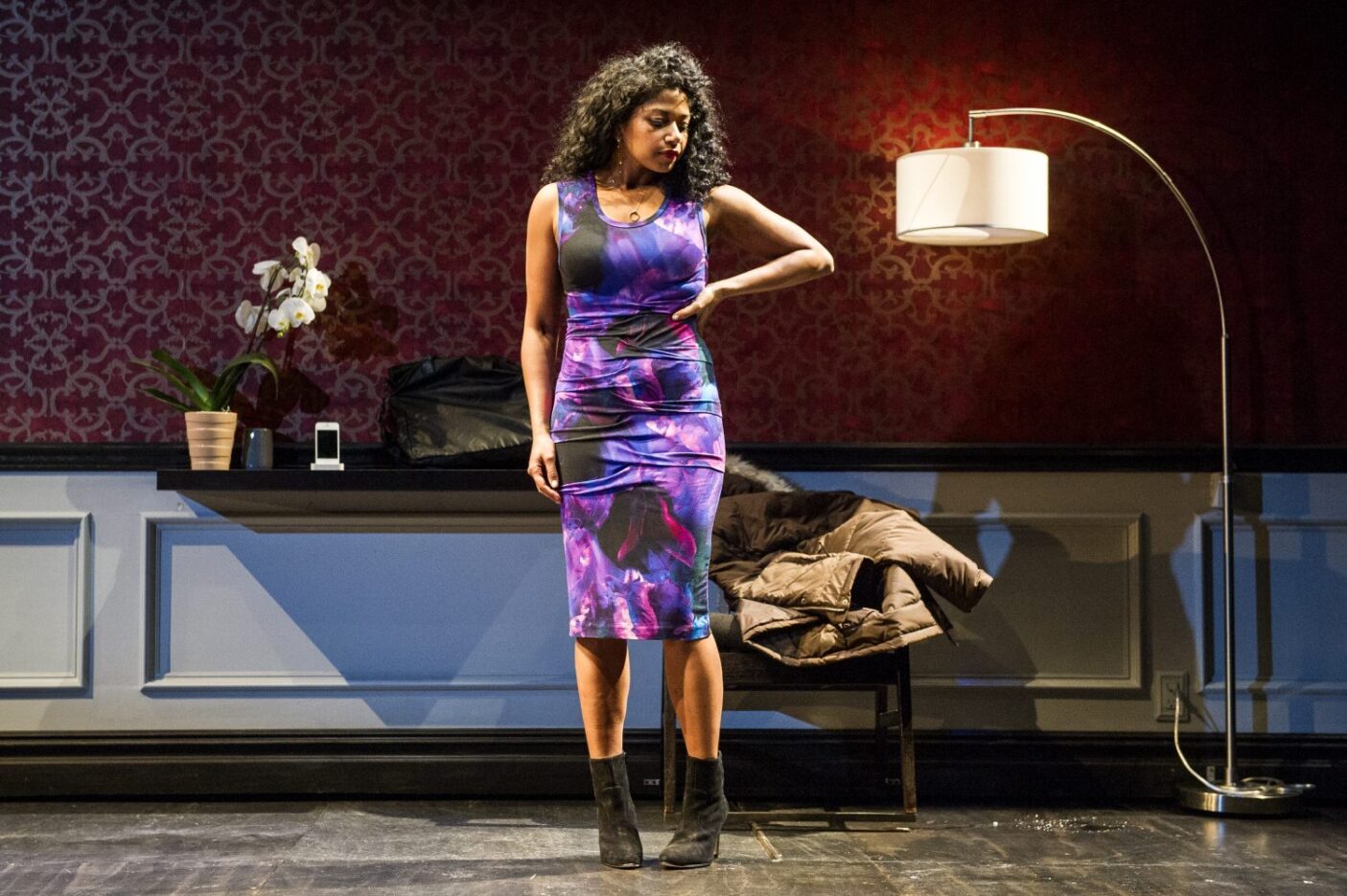By Martyna Majok Directed by Jo Bonney With Rebecca Naomi Jones, Gregg Mozgala, Wendell Pierce, Katy Sullivan
World Premiere
Obie Award-winner Jo Bonney directs the world premiere of Martyna Majok’s play about four very different people, in four very different circumstances, each trying to get by. Eddie (Wendell Pierce), an unemployed truck driver, reunites with his ex-wife Ani after she suffers a devastating accident. John (Gregg Mozgala), a brilliant and witty doctoral student, hires over-worked Jess (Rebecca Naomi Jones) as a caregiver. As their lives intersect, Majok’s play delves into the chasm between abundance and need and explores the space where bodies — abled and disabled — meet each other.
Cost of Living runs 1 hour and 40 minutes with no intermission.

